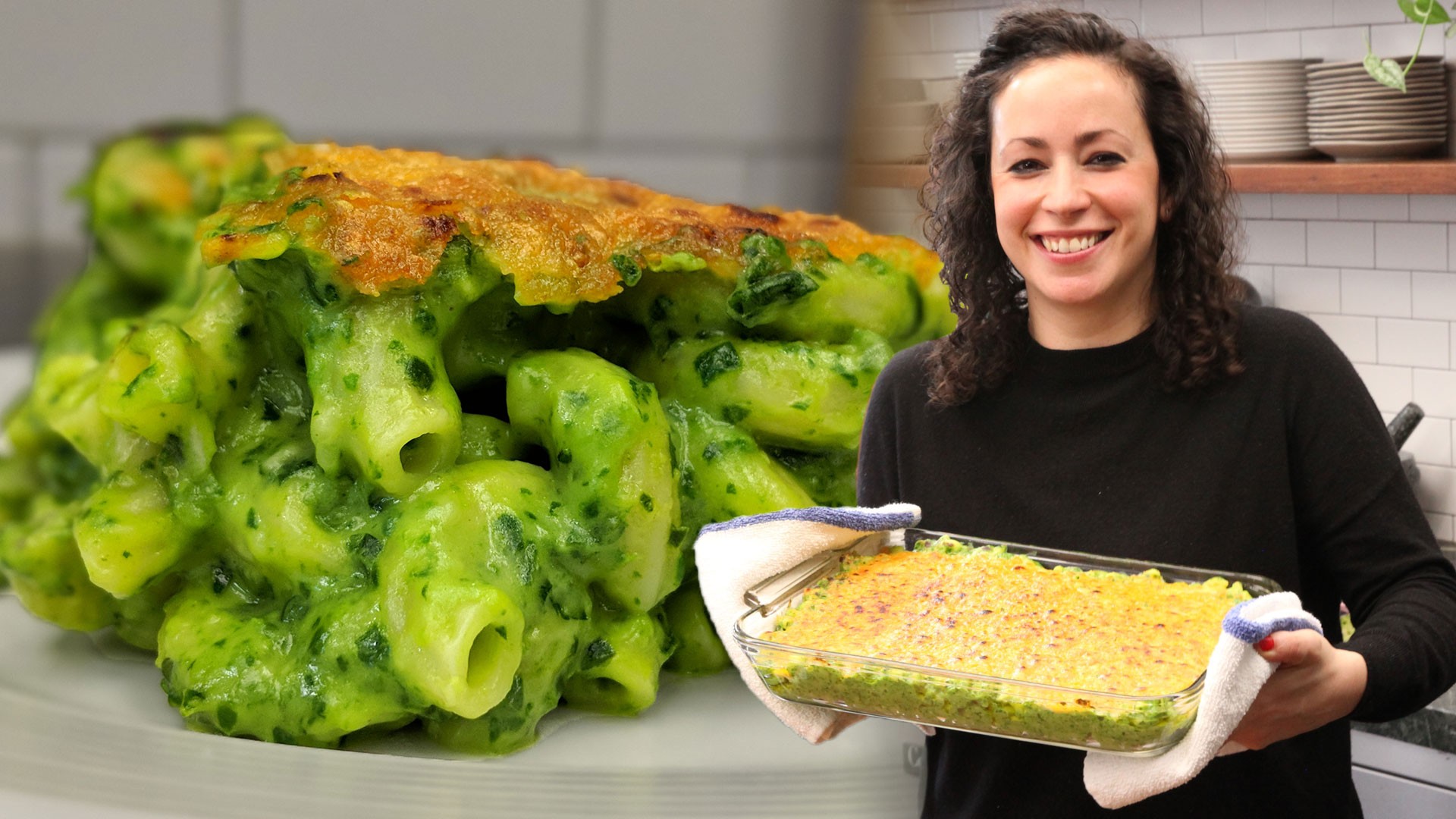Composite image by MUNCHIES staff; original image via Boston Market
Welcome to #NotAnAd, where we post enthusiastically and without reservation about things we’re obsessed with from the world of food.When I chose to move from the Boston suburbs to the small city of Greensboro, North Carolina for college, I knew almost nothing about the state, save for a childhood obsession with native son Michael Jordan. But I’d seen the shining lights directly across the street from campus that told me everything would be just fine: the glow of Boston Market.I wouldn’t admit at the time that a chain restaurant would bring that kind of comfort. I had a poster for The Corporation on the back of my bedroom door, and proudly described Rage Against the Machine as my favorite band. I signed up for Peace & Conflict Studies classes, cut my own hair, and protested everything. You know the type.But in my otherwise unrecognizable new home, Boston Market represented familiarity. Founded a couple years before I was born and just a few miles from where I grew up, the company was originally known as Boston Chicken. In the early 90s, Boston Chicken grew into a chain, with about 25 stores in 1991 and more than 200 by 1993. Two years later, it became Boston Market.As a kid, I just knew I loved it. My parents would occasionally take me and my sister to the Boston Chicken in our small suburb, where I feasted on the sweet corn and the goopy cheddar mac & cheese. The restaurant’s name change almost didn’t register to me, because the food remained untouched. I craved the buttered, overly sweet corn and—more than anything—the unparalleled mac & cheese. The rotini spirals seemed perfectly designed to retain the thick, oozing, and glistening orange cheese. The pasta, always a soft, springy consistency, could do no wrong. Greensboro—North Carolina’s third-largest city, located in the center of the state—felt far from home at first. I’d never heard of Harris Teeter, the local grocery store, and the soulless Starbucks across from campus stirred resentment rather than nostalgia. Quakerism, the religious underpinning of my new school, felt foreign. But more importantly, I’d never lived away from my parents, hadn’t moved since I was 3, missed my friends fiercely, and hated most of the food in the cafeteria.Boston Market counteracted some of that discomfort and adjustment. It wasn’t just that I could find some of the flavors I associated with my childhood there; it was also the fact that the uniformity of the stores, like most chains, made walking inside feel almost like stepping into a friend’s familiar living room. A vegetarian since middle school, I’d always skip the namesake chicken and opt for the “Side Item Sampler,” which comes with three sides and a piece of cornbread. I’d occasionally throw something like mashed potatoes into the mix, but more often than not, I’d revert to my classic order, picking the sweet corn and then doubling up on the mac & cheese.My friends—fellow radicals who took economics so they could better argue why capitalism should be dismantled—weren’t having it. One informed me that McDonald’s owned the company, which was true at the time. Eating there would run counter to my own ethos of conscious consumerism, too. I’d campaigned for fair trade coffee and tea at my high school, rocked union-made jeans, and helped organize to kick food giant Sodexho off my college campus. I knew “ethical consumption” wouldn’t solve the world’s problems, but I’d be damned if I wasn’t going to give it my all.
Greensboro—North Carolina’s third-largest city, located in the center of the state—felt far from home at first. I’d never heard of Harris Teeter, the local grocery store, and the soulless Starbucks across from campus stirred resentment rather than nostalgia. Quakerism, the religious underpinning of my new school, felt foreign. But more importantly, I’d never lived away from my parents, hadn’t moved since I was 3, missed my friends fiercely, and hated most of the food in the cafeteria.Boston Market counteracted some of that discomfort and adjustment. It wasn’t just that I could find some of the flavors I associated with my childhood there; it was also the fact that the uniformity of the stores, like most chains, made walking inside feel almost like stepping into a friend’s familiar living room. A vegetarian since middle school, I’d always skip the namesake chicken and opt for the “Side Item Sampler,” which comes with three sides and a piece of cornbread. I’d occasionally throw something like mashed potatoes into the mix, but more often than not, I’d revert to my classic order, picking the sweet corn and then doubling up on the mac & cheese.My friends—fellow radicals who took economics so they could better argue why capitalism should be dismantled—weren’t having it. One informed me that McDonald’s owned the company, which was true at the time. Eating there would run counter to my own ethos of conscious consumerism, too. I’d campaigned for fair trade coffee and tea at my high school, rocked union-made jeans, and helped organize to kick food giant Sodexho off my college campus. I knew “ethical consumption” wouldn’t solve the world’s problems, but I’d be damned if I wasn’t going to give it my all. Yet I made a quiet exception for Boston Market. For four years, my friend Eileen and I would silently slip off campus, not mentioning our plans to anyone, and walk into the red, black, and white restaurant from my childhood. It became our private ritual, solidifying our friendship with thickly coated noodles under harsh fluorescent lighting. We always saved our longest catchups and our deepest heart-to-hearts for those rare, clandestine trips. And we made sure to fit in one last excursion right before graduation.My consumption extended beyond these restaurant runs with Eileen. Boston Market sold the mac & cheese as a standalone frozen food item, the ideal meal for a lazy college vegetarian. And the neighboring grocery store stocked it. Forget the rest of my corn-forward yellow plate—the microwavable meals meant that I could whip up one of my favorite foods at home, and you better believe I took advantage of this golden-colored opportunity.But, just like the company, the mac & cheese entrée fell on hard times. Back in 1998, Boston Market filed for bankruptcy protection. It had 1,143 locations then, but has closed more than half of them since. McDonald’s bought the chain in 2000, then sold it to a private equity group in 2007. And in a move that seems designed to focus on offering full “meals,” the company axed mac & cheese as a standalone frozen offering, selling things like chicken marsala, sweet & sour chicken, and country fried steak in its place. The mac does come as a side portion with the Salisbury steak, but that’s hardly a consolation.Boston Market has changed dramatically since it first opened. It isn’t even located in the Boston area anymore; it’s headquartered in Colorado. Somewhere along the way, my hometown store shuttered, too. But the taste of its creamy mac & cheese, and my allegiance to it, hasn’t wavered.I’ve changed plenty since those secret college meals with Eileen almost a decade ago. It’s been a long time since I dug into an oozing, saucy bowl of that mac & cheese. Proximity to the chain is no longer a prerequisite for moving, and I now live further from Boston Market than I ever have. I wish they’d bring back the freestanding frozen mac, but even if that never happens, I know that if my political ideals couldn’t keep me away, neither can the distance.
Yet I made a quiet exception for Boston Market. For four years, my friend Eileen and I would silently slip off campus, not mentioning our plans to anyone, and walk into the red, black, and white restaurant from my childhood. It became our private ritual, solidifying our friendship with thickly coated noodles under harsh fluorescent lighting. We always saved our longest catchups and our deepest heart-to-hearts for those rare, clandestine trips. And we made sure to fit in one last excursion right before graduation.My consumption extended beyond these restaurant runs with Eileen. Boston Market sold the mac & cheese as a standalone frozen food item, the ideal meal for a lazy college vegetarian. And the neighboring grocery store stocked it. Forget the rest of my corn-forward yellow plate—the microwavable meals meant that I could whip up one of my favorite foods at home, and you better believe I took advantage of this golden-colored opportunity.But, just like the company, the mac & cheese entrée fell on hard times. Back in 1998, Boston Market filed for bankruptcy protection. It had 1,143 locations then, but has closed more than half of them since. McDonald’s bought the chain in 2000, then sold it to a private equity group in 2007. And in a move that seems designed to focus on offering full “meals,” the company axed mac & cheese as a standalone frozen offering, selling things like chicken marsala, sweet & sour chicken, and country fried steak in its place. The mac does come as a side portion with the Salisbury steak, but that’s hardly a consolation.Boston Market has changed dramatically since it first opened. It isn’t even located in the Boston area anymore; it’s headquartered in Colorado. Somewhere along the way, my hometown store shuttered, too. But the taste of its creamy mac & cheese, and my allegiance to it, hasn’t wavered.I’ve changed plenty since those secret college meals with Eileen almost a decade ago. It’s been a long time since I dug into an oozing, saucy bowl of that mac & cheese. Proximity to the chain is no longer a prerequisite for moving, and I now live further from Boston Market than I ever have. I wish they’d bring back the freestanding frozen mac, but even if that never happens, I know that if my political ideals couldn’t keep me away, neither can the distance.
Advertisement

Advertisement

Advertisement